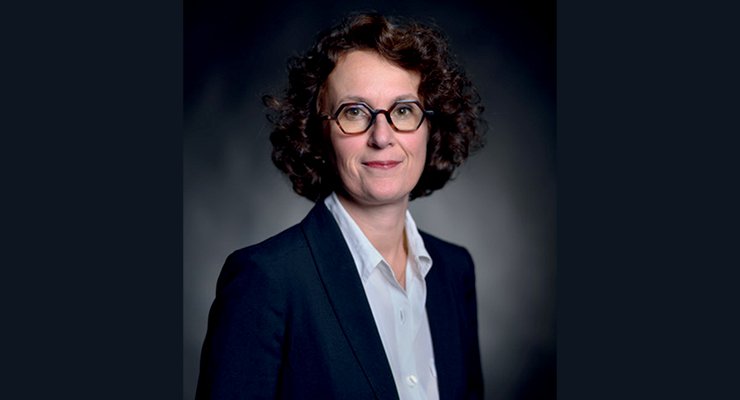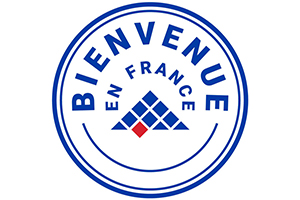
« Une vie professionnelle, ça se construit pas à pas »

Agir sur le monde en changeant le regard sur l’innovation

Design sonore made in UTC sur Radio France
Exchange students are foreign students, French-speaking or not, coming to UTC-Compiegne for a study period of 1 or 2 semesters, and to whom UTC diploma cannot be delivered. These students come thanks to the exchange programmes or networks in which UTC is involved.
The educational programmes are flexible thanks to a cumulative system of courses: Course Credits (CCs), spread over 2 semesters. The diversity of the CCs proposed is important and each CC counts for 4 or 6 ECTS (European Credit Transfer and Accumulation System). The annual load of a UTC student amounts to 60 ECTS (i.e., approximately 12 CCs).
Exchange students can select Core Programme and/or Major CC provided that these courses are actually taught during the semester concerned and that the selection is compatible with the university's timetable.
The student's final choice must be approved by both his/her host university and the UTC. Although most courses are taught in French, some are taught directly in English.
Each department offers a set of courses in English to allow non-French speaking international students to undertake a stay at UTC and to validate credits. These courses are accessible to exchange students as well as to students of the Engineering and Master’s degrees.
UTC likewise proposes a certain number of CCss which call for practical knowledge and which are organized on a project basis. The students who choose to follow these CCs work in small groups in close collaboration with a lecturer-supervisor. The content of these courses is published before each semester and students are free to enrol.
In addition, students who wish to do so can do a professional work placement in a company. The internship must necessarily be preceded by a semester of studies at UTC.
In the French framework of engineering education, UTC offers MSc-degrees ("Diplômes d'Ingénieur") while many of our international partner institutions award BSc and MSc degrees. In order to enhance UTC's international attractiveness, UTC may exceptionally award a UTC-BSc degree to international exchange students.
The Université de Technologie de Compiègne Bachelor of Sciences (UTC-BSc) (Diplôme Certificat d'Études Supérieures de Technologie de l'UTC) can only be awarded to international exchange students. Students having achieved 60 ECTS credit points (ECTS-CP) in the following categories may apply for the UTC-BSc :
30 ECTS-CP from coursework and 30 ECTS-CP from a project
OR 60 ECTS-CP from coursework
In order to apply, students should first check whether their home institution has established an exchange agreement with UTC and then send an application via their local course coordinator, e.g., the local International Relations Office.
The standard application file has to be completed. "I apply for the Université de Technologie de Compiègne Bachelor of Sciences (UTC-BSc)" should be clearly written at the bottom of the chosen course list.
› The UTC-BSc is free of extra charges
First of all, you need to contact the International Relations Office at your home university to make sure that UTC has signed a bilateral contract with your home university.
Download the application form and complete it carefully
Submit your application through the International Relations Office at your home university. Please note that the application deadline for the autumn semester is May 1st and for the spring semester is November 1st.
Your application is being studied and validated by the departments' directors. The UTC reserves the right to reject an application if the french level isn't in adequation with the academic profile or the requested educational path.
You will receive an acceptance letter from UTC enabling you to obtain our visa in one month. Please contact incoming@utc.fr for the reservation of your room and the best itinerary to arrive at Compiègne.
Enjoy your trip and welcome at UTC.
Tuition is paid at the home institution and students incur the following expenses : transportation, room and board, welfare and insurance and leisure activities.
At UTC, tuition for international students is totally free thanks to French government subsidies, but each year students are required to pay the admission registration fees.
Exchange programs :
As soon as the international student arrives in France, he has to create his own personal account and register online to the French Social Security here.
› Students from the European Union or Québec are not required to pay the social security in France, since their home countries have a social security agreement with France. Students over 28 years of age should register at CPAM and their social security is totally free.
There are 2 types of grants for international students : 1° for accommodation and 2° from student's home country.
Since 2018, all the French and international students registered in a first training course have to pay the CVEC (Contribution Vie Étudiante et Campus). The CVEC costs 90 euros. This contribution only concerns students who will get a French diploma.
These grants are based on social criteria and are applicable to:
The grant and/or accommodation scholarship are based on a scale uptaded annually according to financial resources and family responsibilities (information at the CROUS in Amiens or at the reception of the University Residence).
Whether it be a first application or a renewal, requests have to be made via internet before the end of April for the following academic year (check this date at the Registrar's Office). Forms for pre-registration are available at the Registrar's office. Students will be notified notice directly by the CROUS.
Any student of French nationality or political refugees may apply for this type of loan. A commission convenes annually, early December.
This type of loan cannot be awarded concurrently with a Higher Education grant, and being limited in number, only a few students will be allowed to benefit.
Avoid arriving on Sundays, there is very little public transport to Compiègne and you will not be able to pick up the keys to your hall of residence.
UTC-Compîegne has been awarded the label "Bienvenue en France" level 2 stars for the quality of the reception of international students, for the period 2020–2024.

The "Welcome to France" label distinguishes French higher education institutions that have developed reception facilities for international students. A guarantee of confidence, the label attests to the quality of the welcome and os seen as a promotional tool for the institution.
The indicators particularly recognized for UTC are those of the quality and accessibility of information, the quality and accessibility of the reception facilities, the quality and accessibility of the training offer and the support of the teaching staff, accommodation and the quality of life on campus in Compiegne, and the quality of the post-graduation follow-up of the international students.
En savoir plus sur le label
Guide de l'étudiant
Plaquette des relations internationales